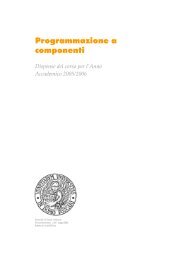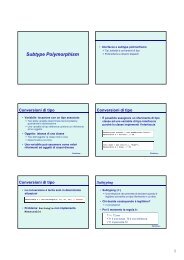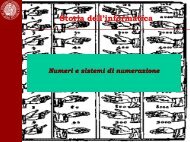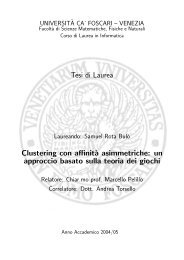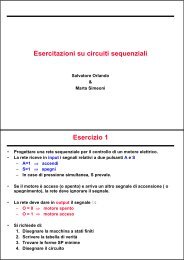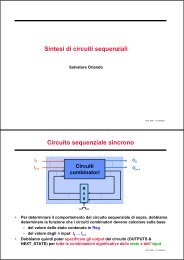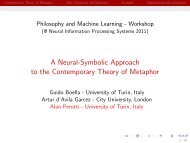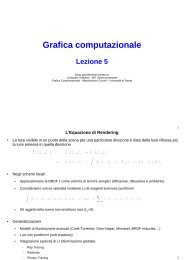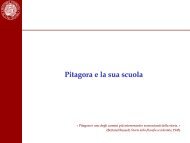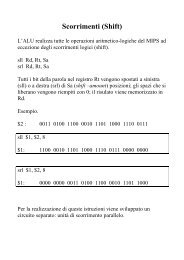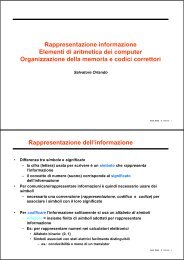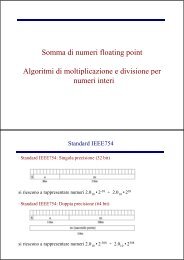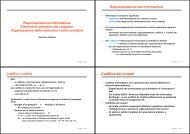Foscari - Dipartimento di Scienze Ambientali, Informatica e Statistica
Foscari - Dipartimento di Scienze Ambientali, Informatica e Statistica
Foscari - Dipartimento di Scienze Ambientali, Informatica e Statistica
You also want an ePaper? Increase the reach of your titles
YUMPU automatically turns print PDFs into web optimized ePapers that Google loves.
So with adjectives and adverbs: The meeting finished so quickly.<br />
Such a with adjective + singular noun: It was such a quick meeting.<br />
Such/So many/So few with plural nouns: You have such friendly colleagues<br />
We sold so many policies last month!<br />
Such/So much/So little with uncountable nouns: It was such good advice.<br />
I have so much work to do.<br />
So/such and too are <strong>di</strong>fferent. So/such express an opinion which can be either positive or negative. Too<br />
suggests a <strong>di</strong>fficulty, that something cannot be done.<br />
There are so many people involved in the project. (it's just my opinion)<br />
There are too many people involved in the project. (we need to reduce the number)<br />
So/such can be used with that to express a result. Too cannot be used with that.<br />
The meeting finished so quickly that I was home by 5.30. (NOT too quickly that)<br />
Quite, fairly, pretty or rather?<br />
Quite, fairly and pretty mean “a me<strong>di</strong>um amount”. “Like most businesses, we’re fairly cautious about<br />
what might come in the next couple of years, mainly because of the Asian situation”<br />
In American English pretty is a common way of saying 'very'.<br />
We can change the meaning of quite in British English by stressing the adjective in speech. The<br />
meaning changes to 'very'. This is called understatement.<br />
The restaurant was quite good. (normal meaning: it was OK)<br />
The restaurant was quite good. (understatement: it was very good)<br />
Rather also means 'a me<strong>di</strong>um amount', but it often suggests that something is bad, surprising or<br />
unusual. It is more formal.<br />
It’s rather late to do anything now. (It's a little too late, I'm afraid)<br />
The restaurant was rather good. (I enjoyed it, surprisingly)<br />
With a comparative we can only use rather, not quite.<br />
The meeting took rather longer than I expected. (NOT quite longer)<br />
With some adjectives quite means 'absolutely' or 'completely'. These include: absurd, certain, <strong>di</strong>fferent,<br />
hopeless, impossible, ri<strong>di</strong>culous, right, sure, true, wrong.<br />
I'm quite certain about this. (= absolutely certain)<br />
121



